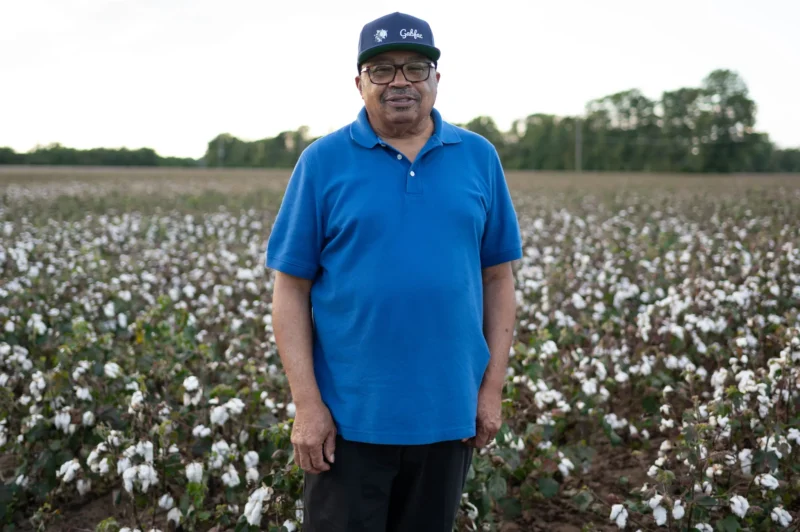No One Wants To Talk About Racial Trauma. Why My Family Broke Our Silence
Share
Explore Our Galleries
Breaking News!
Today's news and culture by Black and other reporters in the Black and mainstream media.
Ways to Support ABHM?
By Cara Anthony, KFF Health News

SIKESTON, Mo. — I wasn’t sure if visiting a cotton field was a good idea. Almost everyone in my family was antsy when we pulled up to the sea of white.
The cotton was beautiful but soggy. An autumn rain had drenched the dirt before we arrived, our shoes sinking into the ground with each step. I felt like a stranger to the soil.
My daughter, Lily, then 5, happily touched a cotton boll for the first time. She said it looked like mashed potatoes. My dad posed for a few photos while I tried to take it all in. We were standing there — three generations strong — on the edge of a cotton field 150 miles away from home and decades removed from our own past. I hoped this was an opportunity for us to understand our story.
[…]
Cotton is complicated. White people got rich off cotton while my ancestors received nothing for their enslaved labor. My grandparents then worked hard in those fields for little money so we wouldn’t have to do the same. But my dad still smiled when he posed for a picture that day in the field.
“I see a lot of memories,” he said.
I’m the first generation to never live on a farm. Many Black Americans share that experience, having fled the South during the Great Migration of the last century. Our family left rural Tennessee for cities in the Midwest, but we rarely talked about it. Most of my cousins had seen cotton fields only in movies, never in real life. Our parents worked hard to keep things that way.
At the field that day, my mom never left the van. She didn’t need to see the cotton up close. She was around Lily’s age when her grandfather taught her how to pick cotton. He had a third-grade education and owned more than 100 acres in western Tennessee. Sometimes she had to stay home from school to help work that land while her peers were in class. She would watch the school bus pass by the field.
“I would just hide, lying underneath the cotton stalks, laying as close to the ground as I could, trying to make sure that no one would see me,” my mom said. “It was very embarrassing.”
She didn’t talk to me about that part of her life until we traveled to Sikeston. Our trip to the cotton field opened the door to a conversation that wasn’t easy but was necessary. My reporting sparked similar hard conversations with my dad.
Travel through that open door in the original article.
Discover the fascinating story of one amazing enslaved man using science to help others.
Stop by ABHM’s breaking news before you leave.









Comments Are Welcome
Note: We moderate submissions in order to create a space for meaningful dialogue, a space where museum visitors – adults and youth –– can exchange informed, thoughtful, and relevant comments that add value to our exhibits.
Racial slurs, personal attacks, obscenity, profanity, and SHOUTING do not meet the above standard. Such comments are posted in the exhibit Hateful Speech. Commercial promotions, impersonations, and incoherent comments likewise fail to meet our goals, so will not be posted. Submissions longer than 120 words will be shortened.
See our full Comments Policy here.